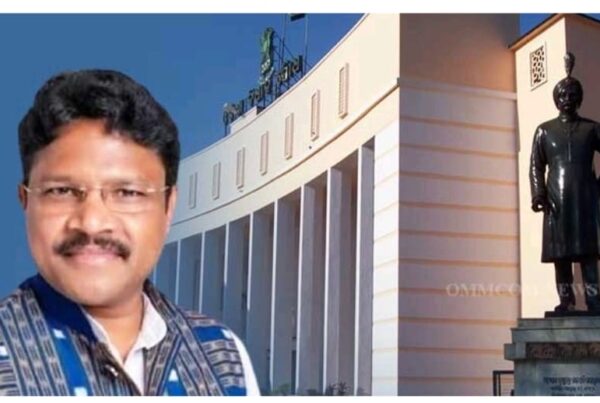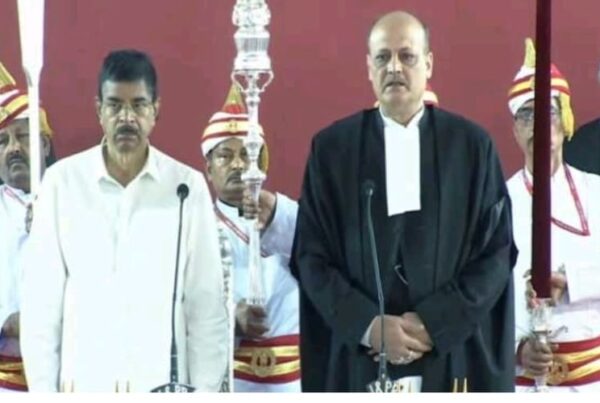![]()
On March 4, Mr. Trump announced that the U.S. intends to terminate India’s designations as a beneficiary developing country under the GSP programme. The 60-day notice period ended on May 3.
A day after a group of journalists was told that India’s access to preferential trade terms under the U.S.’s Generalized System of Preferences (GSP) was on its way out, U.S. President Donald Trump issued a proclamation ending the trade benefits effective June 5. However, benefits could possibly be reinstated subject to India and the U.S. reaching an agreement, according to a senior State Department official.
“I have determined that India has not assured the United States that India will provide equitable and reasonable access to its markets. Accordingly, it is appropriate to terminate India’s designation as a beneficiary developing country effective June 5, 2019,” Mr. Trump’s proclamation read. The GSP is a programme that seeks to aid developing countries by giving some of their products non-reciprocal, duty free access to U.S. markets. In 2018, some $ 6.3 billion of Indian merchandise exports to the U.S. were covered by GSP, as per the Congressional Research Service.
This represented 11% of all merchandise from India. India was the largest beneficiary of the programme, accounting for over one quarter of all the U.S.’s GSP-covered imports. The U.S. Trade Representative (USTR) began a review of India’s eligibility for GSP in April 2018. The U.S. medical devices and dairy industries had made representations on market access issues in India. Tariffs in the ICT sector had also become an irritant in ties.
Package rejected
India had offered the U.S. a “meaningful package” that covered U.S. concerns, but this was not acceptable to the U.S., India’s Commerce Secretary Anup Wadhawan had said in March. Mr. Trump had notified the U.S. Congress on March 4 of his intention to end benefits for India for market access reasons, and this kicked off the 60 day statutorily mandated notification period. Friday’s proclamation was issued despite requests from U.S. lawmakers that GSP not be withdrawn as it would harm U.S. companies.
Some lawmakers had asked the administration to hold off making a final decision on GSP until the Indian elections had concluded. Significantly, the new Indian Cabinet was sworn in May 30. The proclamation also withdrew the exemption for India from safeguard measures on CPSV (crystalline silicon photovoltaic) products and large residential washers.
The U.S. had, via a presidential proclamation, issued safeguard measures on certain CSPV imports and large residential washers. India was exempt from these safeguards because it accounted for less than 3% of the total imports of the products and collectively all exemptions did not add up to more than 9% of total imports of that products.
The President had also notified Congress on March 4 that he would be taking Turkey off the GSP list because it had reached a level of economic development that no longer warranted it getting access to the program. Turkey, the fifth largest beneficiary of the programme in 2017, was taken off the list effective May 17.
Eight criteria
There are eight mandatory and seven discretionary criteria for GSP eligibility. Mandatory criteria include a beneficiary not being a communist country and committing to end the worst forms of child labour. Discretionary criteria include the level of economic development (i.e, the Turkey case), and assurances on market access (i.e., the India case).
Consequently, GSP benefits may be re-instated if India and the U.S. are able to reach agreement on some of their trade challenges, as per a U.S. official. “…That doesn’t rule out in the future being able to – you achieve the reforms and the market access that we need under this program – to restore [India’s GSP] benefits,” a senior State Department official told a group of reporters on Thursday afternoon in Washington.
U.S. firms unhappy
The Coalition for GSP, an industry body, was not supportive of the measure, saying it would cost American companies $300 million in additional annual tariffs. “There are no winners from today’s decision,” Dan Anthony, executive director of the group, said in a statement, as reported by Bloomberg. “American importers will pay more, while some American exporters will continue to face current market access barriers in India and others, including farmers, are very likely to be subject to new retaliatory tariffs.”
Speaking to The Hindu, Nisha Biswal, President of the U.S.-India Business Council (USIBC) said, “It is unfortunate that the U.S. has moved to terminate GSP benefits. USIBC and the U.S. Chamber of Commerce have long advocated for continuation of the GSP program, which provides important benefits for both India and the United States.”
“However, we recognize the significant concerns surrounding market access for U.S. companies in India, including price controls on medical devices and tariffs on ICT, and other trade issues,” she added.





